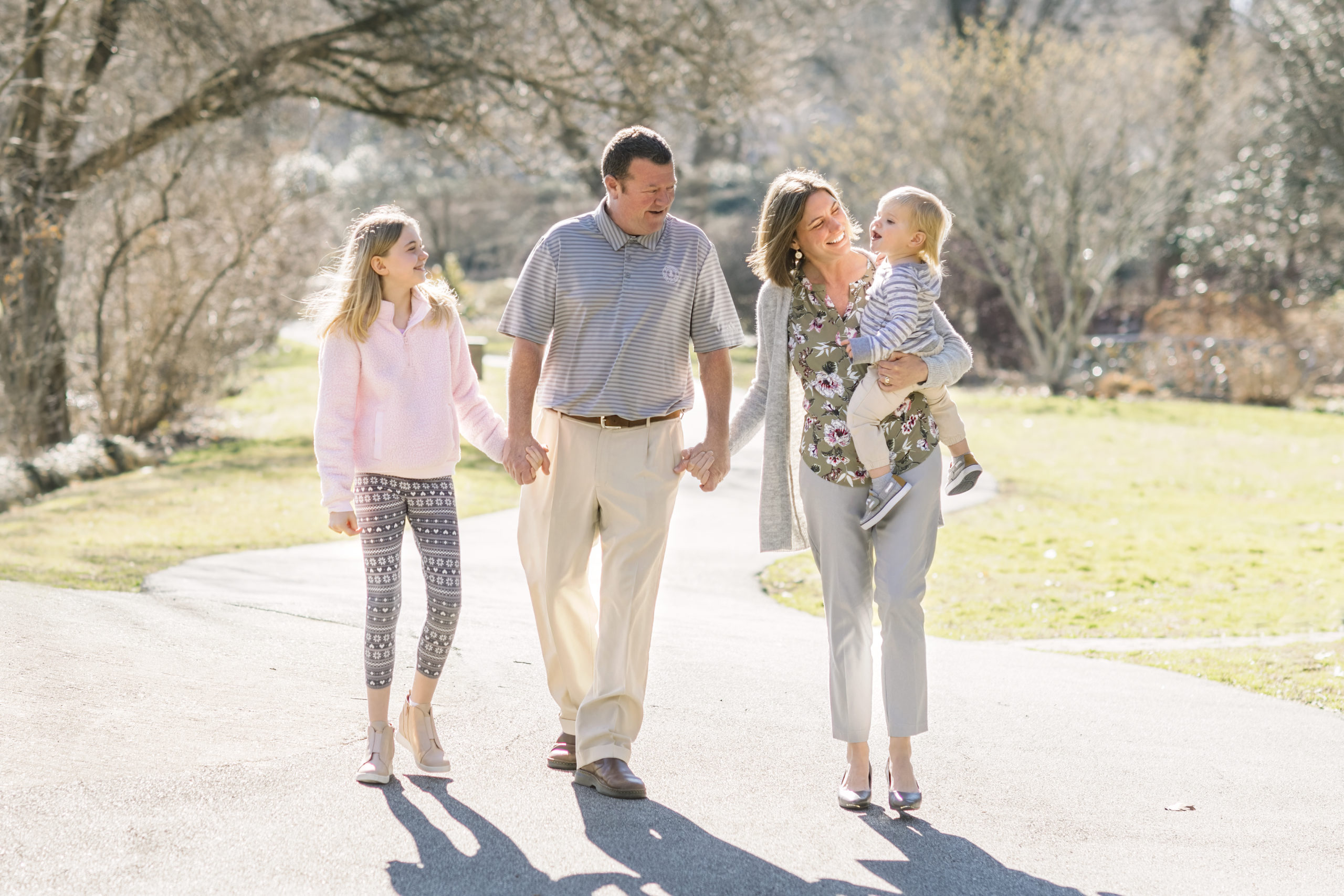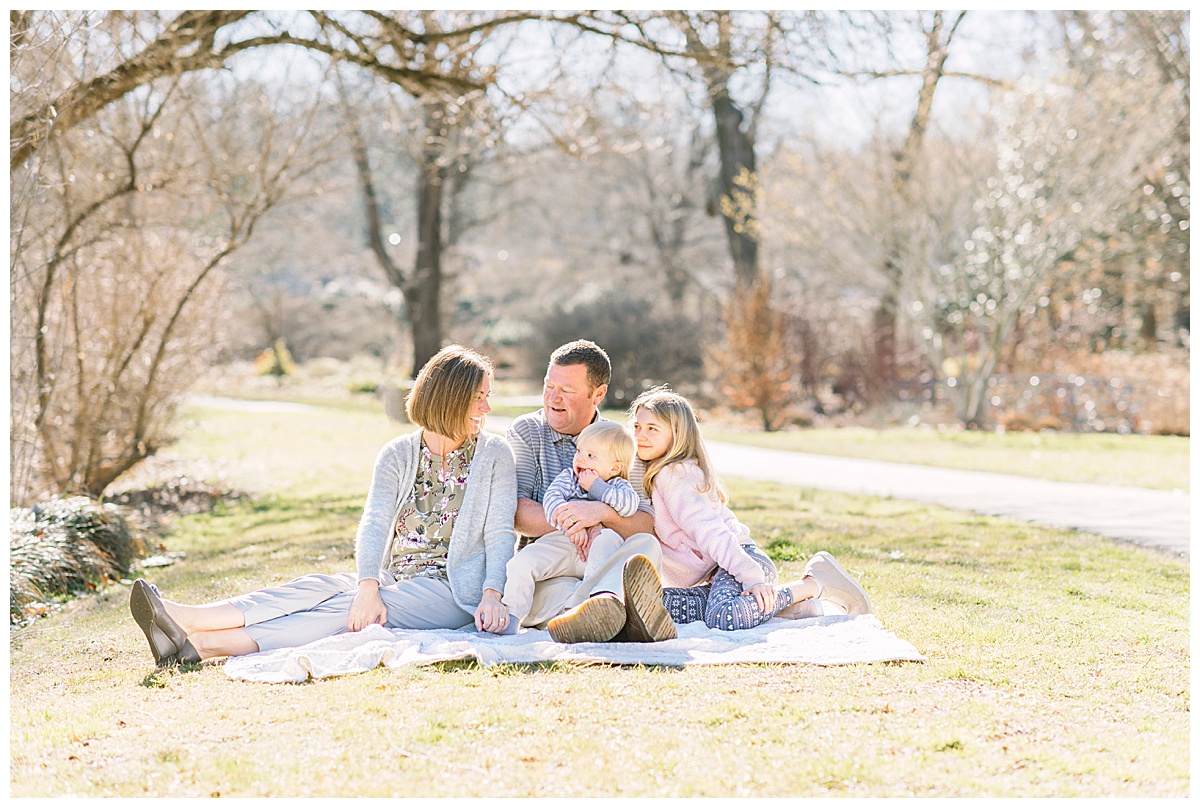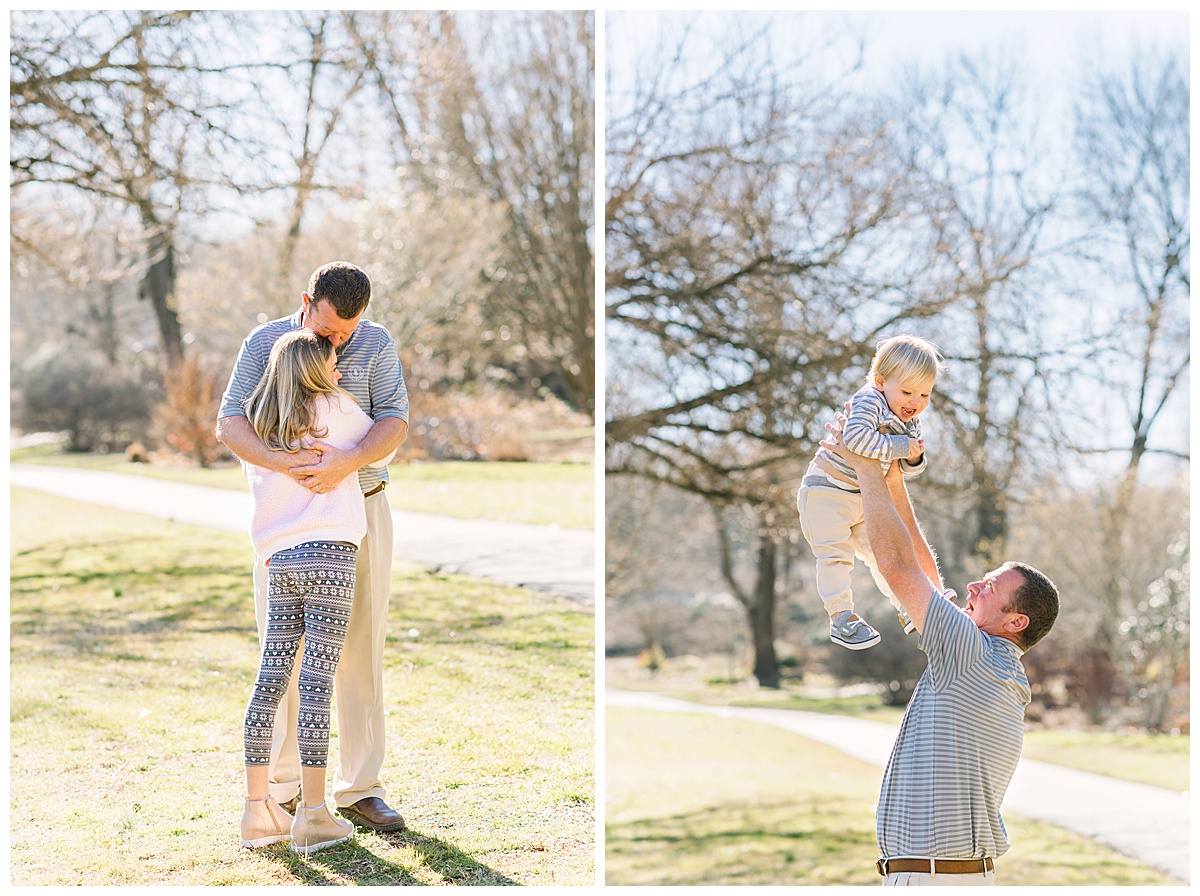
Q&A with Family Mediator Asheboro NC | Fairway Family Mediation
If you are considering family separation or divorce, family mediation services, as opposed to the court system, may be the right path for you and your family. Family mediator Brooke Schmidly of Fairway Family Mediation sat down to talk with me about what she offers and how she guides families toward more amicable co-parenting relationships that benefit children in the short and long terms. I hope this conversation with Brooke is helpful to you and your family.
Q&A with Family Mediator Asheboro NC | Fairway Family Mediation
What is your background and experience? What professional experiences have prepared you most for your current position?
“I am a former district court judge in Randolph County, North Carolina. As a judge I decided cases involving children and families including divorce, property distribution, family support, child custody, juvenile delinquency cases, and abuse and neglect cases. Prior to my appointment as a judge, I was an attorney in private practice in Asheboro, NC for 12 years litigating divorce/family and other civil cases. Deciding these cases and representing couples in divorce and custody proceedings for a decade convinced me that there is a better, less destructive, less costly way to handle family separation and divorce. I believe children and families benefit from mediation, a process that reduces conflict and is efficient. In addition to my civilian employment, I am a Lieutenant Colonel in the United States Air Force Reserve and previously served 6 years on active duty as a judge advocate general (JAG).
“I graduated from the University of North Carolina at Chapel Hill and the University of Houston Law Center. I have a Master’s Degree in Military Operations and graduated from Air War College in 2016. I am a trustee of Randolph Community College, the Chair of the Asheboro ABC Board, and am on the Board of the North Carolina High School Mock Trial Program.”

What services do you offer and for whom? What is your role in the process?
“I offer family mediation services in NC either through a virtual platform or at my office in Asheboro, NC. I help families reach temporary and/or permanent agreements regarding parenting plans for children, division of marital property, and family support. I serve families in whatever configuration they come (married or not, same sex or heterosexual, etc.). I learn about the family to gain insight into the needs and interests of each person and then help the parties consider options and negotiate agreement in a way that meets the needs and interests of each person as fully as possible. My role is to facilitate communication, develop options to meet the needs of the parties and to help the parties through negotiating the details of an agreement.”

What are the benefits of mediation to the separating couple, the family as a whole, and to children, in particular?
“Mediation is required when families go to court regarding a separation or divorce. However, that mediation happens after a long, expensive court process. Meanwhile, most couples are dealing with tremendous uncertainty and rising legal bills at their most financially precarious moment (as an income level that used to support one home now has to support two).
“I simply move mediation up in the process to attempt to resolve issues before a couple heads to court. I simplify the disclosure process (so both parties know all property and income that is impacted) and we can work on temporary agreements right as the separation happens until we are ready to make a more permanent agreement, if necessary.
“The parties typically share the cost of my services (rather than each paying their own attorneys). And, if we don’t reach agreement and the couple decides to go to court, they can take the simplified disclosure form to the attorney they hire (significantly reducing legal fees to do court ordered financial disclosure).
“For families with children, we can take the time we need to ensure the plan is right for the children, understood fully by the parents, and builds in systems to address situations in which conflict regularly occurs. Divorce is painful for kids. But study after study has shown that if children are not subjected to long lasting high conflict, they bounce right back and do great. We help families de-escalate conflict by having an efficient process where families are not in limbo for extended periods of time and by creating processes in agreements for dealing with conflict that may occur. While the court system is important and needed for some families, many aspects of the court process exacerbates conflict instead of reducing it.
“Mediation early is efficient, costs far less than court, and helps to reduce conflict.”
When do you suggest families contact you if they are moving toward separation or divorce?
“At any time! I am willing to do a 20-minute phone call with each person to describe the process and answer questions. Wherever families are in the process, I can help them. If the parties are represented by attorneys, the attorneys need to consent to my working with the couple.”

Why do you suggest that families try to avoid the court system whenever possible?
“The cost of a court action related to separation is very high. Attorney retainers are often $5,000 and higher (and that is just the retainer, not the full cost of the battle). And, the process is slow, leaving couples with tremendous uncertainty sometimes for more than a year. Some couples need to be in court but most do not. If both parties will agree to try mediation and be honest about income and property, we can usually avoid the court process.
“Further, you have to file a complaint in the court process. Those complaints often set out private details about your life and finances, which then becomes public record. Often the complaints detail “bad” things the other partner has done during the marriage and conflict explodes when the spouse gets served with the complaint. Mediation keeps all of those details private and de-escalates conflict rather than exacerbating it.”

What questions are you asked most frequently at the outset of the mediation process?
Do I have to be in the room with my spouse?
“The answer is no. Usually, I have the couple together for some parts of the mediation and in separate rooms (real or virtual) for parts of it. But, you don’t ever have to be in the same room if you don’t want to be. My role is to help you consider options and I go back and forth between you discussing those options and specific offers you may make. Then, if both are comfortable, we get back together to go over the agreement we have reached to make sure we are all on the same page. But, I can do that separately with each of you if you prefer.”
Will I be worse off if I mediate than if I go to court?
“No! You will very likely be better off. First, I encourage people to consult with an attorney to understand the law and the court process they will have to use if an agreement does not work (those consults usually cost around $150). I have a blog post on my website about the types of things you should ask the lawyer during that consult. I can also refer clients to lawyers for the consult if they would like. Second, if a couple begins to negotiate something far different from what the law supports in NC, I advise them of that and recommend they talk to a lawyer before agreeing to that. Last, lawyers are often needed to implement the agreement we reach (do deeds, court orders, etc.). That allows people to get legal advice before signing. Even though a lawyer is involved, the fees are a fraction of what a full court action would cost and the drafting the attorney needs to do can be done quickly. We work to help you reach a fair and wise agreement, not an agreement at any cost.”
Can you help if there has been domestic violence?
“Maybe. If there is a domestic violence protection order, I need to review that order carefully. It may be necessary to get the court to modify that order for the purpose of allowing a mediation (usually virtual where you are not going to be in the same location). I also want to talk to the victim of the domestic violence to ensure he or she is comfortable. Victims of domestic violence may benefit from legal representation.”

Can I be represented by a lawyer in the mediation?
“Yes! If you want your lawyer present with you for the mediation, that is just fine. Or, you can do the mediation with me and take the proposed agreement to your lawyer. If there are concerns or any clarifications needed, we can get back together (though that very rarely will occur).”
Are there any situations that are not appropriate for mediation in your process?
“Yes. If one spouse is likely to hide assets or refuse to voluntarily share account statements, you need the court process. But, if you both will agree to try it and share information honestly, this process can help you!”

A few more words from Brooke…
“My services are particularly important for families with children. As I alluded to earlier, divorce is hard on kids. But, if kids are not exposed to long term high conflict, they bounce right back and do very well. Kids who are exposed to long term high conflict of parents have statistically much higher likelihoods of negative outcomes (anxiety, depression, self-harm, substance abuse, behavior and academic problems). The most important thing a couple can do to help their children when separation or divorce occurs is to reduce conflict and reassure the children that the children get to love and spend time with each of you. While my process will save you money, the protection it gives your children is what is truly priceless.”
Q&A with Family Mediator Asheboro NC | Fairway Family Mediation
To be in touch with Brooke, email her at brooke@fairwayfamilymediation.com, call 336.462.8116, or visit her website and use the Contact Us link on her page.
While you’re here, I’d love to talk to you about capturing your growing family! Click here to view more of my portfolio, and let’s start the conversation.
Thanks for reading!
—Emily
Do you have a question you would like answered or researched? I would love to hear from you – drop me an email to hello@emilyrichardsonphoto.com so I can feature it on my blog!
If you think we are a great fit for each other, let's chat. Fill out my contact form and I will be in touch! Talk soon!
CONTACT ME
Are you a local mama or non-binary parent in the greater Triad region of North Carolina (or even a frequent visitor to the area)?
Join my amazing Hearts Wide Open: Parenthood in the Piedmont Facebook group! You'll find an incredibly warm community, my dorky sense of humor on full display, support for all things parenting, and early access to my booking calendar!
Join us!